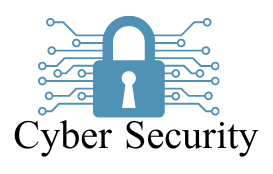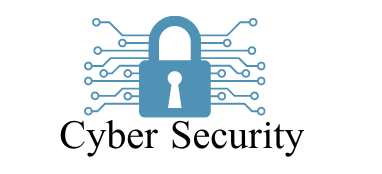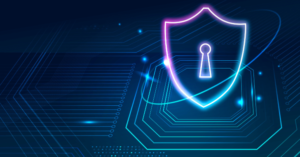It’s critical for individuals and businesses to keep safe online in an increasingly digital world. Effective methods must be put in place to safeguard sensitive and personal data because cyber dangers are always changing.
Tips for Consumers
1. Use Strong, Unique Passwords
Why it Matters:
Your first line of protection against cyberattacks is a strong password. Encouraging many accounts to use the same password raises the possibility of a data leak.
Best Practices:
- Create Complex Passwords:Mix alphanumeric characters, special characters, and letters.
- Avoid Common Phrases:Avoid using passwords that are simple to figure out, such as “password123.”
- Use a Password Manager: Complex passwords can be securely generated and stored using programs like KeePass or LastPass.
2. Enable Multi-Factor Authentication (MFA)
Why it Matters:
By requiring a second form of verification, MFA adds an extra layer of security to your accounts, making it more difficult for hackers to access them.
Best Practices:
- Set Up MFA on All Accounts: Make sure MFA is enabled for social media, banking, and email accounts.
- Use Authenticator Apps: Secure MFA codes can be obtained with apps like Authy or Google Authenticator.
3. Be Wary of Phishing Scams
Why it Matters:
Phishing scams employ phony emails or websites to deceive people into disclosing personal information.
Best Practices:
- Verify the Sender:Verify links and email addresses before clicking.
- Look for Red Flags: Phishing frequently manifests as unclear attachments, hurried demands, and poor grammar.
- Report Suspicious Emails: Report any phishing efforts to your IT department or email provider.
4. Secure Your Devices
Why it Matters:
Unprotected gadgets may provide hackers with access to your personal data.
Best Practices:
- Update Regularly: Update your operating system, applications, and software.
- Use Antivirus Software: Set up and keep up trustworthy antivirus software.
- Encrypt Sensitive Data: To safeguard crucial documents and conversations, use encryption software.
5. Practice Safe Browsing
Why it Matters:
Your privacy and security may be compromised by malicious websites.
Best Practices:
- Use HTTPS: Check for “https” in the URL to make sure webpages are secure.
- Avoid Public Wi-Fi for Sensitive Transactions: When accessing sensitive information via public networks, avoid using public Wi-Fi and instead use a VPN.
- Install Browser Security Extensions: Browser security is improved by programs like uBlock Origin and HTTPS Everywhere.
Tips for Businesses
1. Implement Comprehensive Security Policies
Why it Matters:
Your company can be protected from cyber threats by having security policies that are both clear and enforced.
Best Practices:
- Develop and Document Policies: Create and record policies that address topics including data encryption, incident response, and password management.
- Regularly Update Policies: Adjust to new risks and technological advancements.
- Train Employees: To make sure all staff members are aware of and obedient to policies, regularly conduct cybersecurity training.
2. Invest in Advanced Security Solutions
Why it Matters:
Strong security tools are necessary to safeguard critical company information and systems.
Best Practices:
- Use Firewalls and Intrusion Detection Systems: Keep an eye on and manage both inbound and outbound network traffic.
- Deploy Endpoint Security: Install endpoint security to safeguard all of the devices linked to your network.
- Utilize Data Loss Prevention (DLP) Tools: Stop illegal data leaks and transfers.
3. Perform Regular Security Audits
Why it Matters:
Frequent audits assist in locating weak points and places where your security posture can be strengthened.
Best Practices:
- Conduct Internal and External Audits: Employ both internal and external auditors to ensure thorough evaluations.
- Implement Penetration Testing: Play through attacks to see how well your defenses work.
- Follow Up on Findings: Any vulnerabilities found should be fixed right away.
4. Backup Data Frequently
Why it Matters:
Maintaining regular backups guarantees that, in the case of a system breakdown or cyberattack, you can restore vital data.
Best Practices:
- Automate Backups: To avoid data loss, schedule frequent, automated backups.
- Store Backups Securely: If at all possible, store backups offsite and make use of secured storage options.
- Test Backup Recovery: Continually assess your capacity to retrieve data from backups.
5. Stay Informed About Emerging Threats
Why it Matters:
Since cyber risks are always changing, being aware of them can help you safeguard your company proactively..
Best Practices:
- Subscribe to Cybersecurity News: To stay up to date on the newest dangers and best practices, follow reliable sources.
- Join Professional Networks: Engage in discussions and industry groups to exchange insights and experiences.
- Engage with Cybersecurity Experts: For specialized guidance and solutions, think about speaking with cybersecurity experts.
Conclusion
It takes alertness and proactive steps from both customers and businesses to stay safe online. You may greatly improve your internet security and lower your risk of cyber dangers by putting these ideas into practice. Recall that maintaining cybersecurity requires constant learning and adjustment to new threats. To safeguard your digital assets, be knowledgeable, alert, and proactive.



